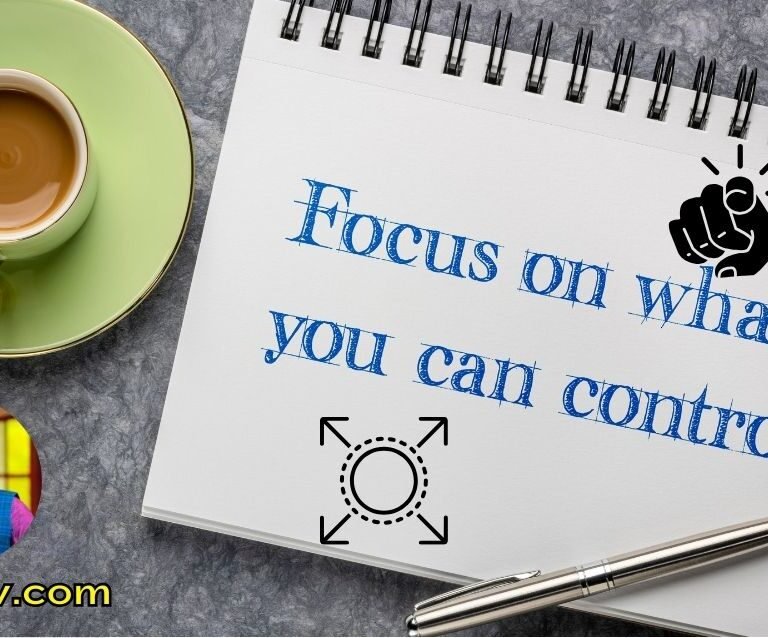Redefining Success
The traditional narrative surrounding success largely focuses on tangible metrics such as wealth, status, and personal achievements. While these accomplishments are often celebrated and recognized in society, they can lead to temporary satisfaction rather than long-term fulfillment. Many individuals pursue these conventional measures, believing that accumulating riches or accolades will bring happiness. However, this pursuit can result in a sense of emptiness, as the high achieved from reaching set goals tends to dissipate quickly, prompting a cycle of continual striving without enduring contentment.
This brings into question the very definition of success. What if success was redefined to prioritize impact over personal gain? Impact, in this context, refers to the effect one has on others and the surrounding community. This perspective encourages individuals to consider the broader consequences of their actions—not just for themselves but for society as a whole. By aiming for meaningful change, individuals can derive a deeper sense of purpose, contributing to causes that resonate with their values and passions.
Furthermore, focusing on impact fosters a collaborative spirit, inspiring others to join in on initiatives that promote positive change. Communities thrive when individuals seek to uplift those around them rather than just advancing their own status. When one’s efforts are directed towards leaving a lasting legacy, the meaning of success transforms from an isolated pursuit to a shared journey, enhancing collective well-being and promoting sustainable growth.
As we delve deeper into this discussion, it becomes evident that reimagining success in terms of impact opens new avenues for personal development and societal advancement. It invites us to engage in a more enriching pursuit, one that not only benefits ourselves but also enriches the lives of those we influence.
Understanding Impact: What Does It Mean?
The term “impact” often conjures thoughts of significant achievements or quantifiable outcomes. However, true impact extends beyond surface-level success, encompassing both personal fulfillment and broader societal change. At its core, impact refers to the lasting influence an individual’s actions have on their environment, community, or even the world at large. It is the capacity to inspire change, foster growth, and improve lives through deliberate efforts.
When considering personal impact, one may reflect on the ways in which individual choices affect those around them. For instance, a teacher who goes beyond the curriculum to inspire students can have a profound effect on their lives, cultivating not only knowledge but also resilience and character. Similarly, entrepreneurs who prioritize sustainability in their businesses not only achieve financial success but also contribute positively to environmental preservation.
On a societal level, impactful initiatives are often rooted in addressing pressing issues. Nonprofit organizations, for example, mobilize resources to tackle poverty, education inequities, or health crises—effects that reach far beyond their immediate goals. For instance, the transformative power of programs that provide education and vocational training to underprivileged communities showcases how collective efforts can lead to significant societal enhancement.
Moreover, historical figures like Martin Luther King Jr. or Malala Yousafzai exemplify individuals whose actions created rippling effects throughout time. Their legacies live on, significantly shaping conversations around equality and education while motivating future generations to pursue social justice. These examples underscore the essence of impact; it is not merely about personal accomplishment but about how actions resonate and foster change in the lives of others.
Ultimately, understanding what impact means is a personal journey that encourages you to reflect on your values, aspirations, and the ways in which you contribute to the world around you. Whether through small gestures or large-scale initiatives, every effort to create a positive impact can manifest in different forms, leaving an indelible mark on society.
The Difference Between Success and Impact
Success and impact are terms often used interchangeably, yet they embody profoundly different philosophies and outcomes, especially when considering personal ambitions and societal contributions. Success typically denotes the achievement of predetermined goals, often centered around individual accolades, career milestones, or financial achievements. For instance, a business executive who secures a multimillion-dollar deal is generally regarded as successful, as this accomplishment elevates their status and potentially increases their wealth. However, this type of success can sometimes be self-serving, focusing primarily on personal gain rather than collective welfare.
Conversely, impact transcends personal achievements to embrace broader, community-centered outcomes. It encapsulates the meaningful changes one fosters in the lives of others. A poignant example is found in the realm of social entrepreneurship. Consider an entrepreneur who develops a sustainable product that reduces waste and promotes environmental awareness. While this individual may experience success through sales and market expansion, the true measure lies in the positive changes brought to the community and ecosystem. Their impact fosters a culture of sustainability, inspiring others to make conscious choices.
This distinction highlights that while success can contribute to personal growth, impact extends beyond the individual, creating ripples of effect that benefit society as a whole. A public figure devoted to philanthropic efforts illustrates this further. Such a person often gains respect and admiration not solely for their professional stature but for their commitment to enhancing the lives of others. Thus, aspiring individuals must ponder whether their goals aim solely for personal success or strive to create a lasting impact that enriches their communities.
Why Aim for Impact? The Benefits of a Purpose-Driven Life
Aiming for impact rather than merely success infuses one’s life with meaning and direction. The pursuit of impact emphasizes the value of contribution to others’ lives, creating a deep sense of fulfillment that traditional measures of success, such as wealth or status, often fail to provide. When individuals prioritize having a positive effect on their communities and the world, they experience a genuine satisfaction that transcends personal accolades.
One of the most significant advantages of a purpose-driven life is the establishment of stronger connections with others. By focusing on impact, individuals are more inclined to collaborate, engage, and form lasting relationships that are built on shared values and goals. This interconnectedness not only enriches personal interactions but also cultivates a supportive network that encourages growth and resilience. The realization that one’s actions matter fosters a sense of belonging, motivating individuals to immerse themselves in communities and initiatives that align with their purpose.
The focus on making a difference also propels personal development. When people redirect their energies towards impactful endeavors, they are pushed beyond their comfort zones, leading to enhanced skills and new perspectives. This journey not only promotes self-discovery but also encourages the cultivation of empathy, understanding, and compassion. As individuals witness the effects of their efforts, they often find themselves inspired to continue striving for greater impact, creating a positive feedback loop of personal growth.
Furthermore, aiming for impact ensures that one leaves a legacy that resonates beyond their lifetime. Individuals whose lives are dedicated to positively influencing others often inspire subsequent generations to carry forward their ideals. Thus, prioritizing impact can lead to an enduring influence, echoing through time.
Case Studies: Individuals Making an Impact
In today’s rapidly evolving society, the drive for success is often overshadowed by a more profound desire to make a meaningful impact. Several individuals and organizations exemplify this notion, demonstrating that success can coexist with a commitment to positive change in communities and industries. One remarkable case is that of Greta Thunberg, a global climate activist who has inspired millions worldwide. At just a young age, Thunberg initiated ‘Fridays for Future,’ a movement encouraging youth to protest for climate action. Her strategic use of social media allowed her message to resonate globally, leading to widespread participation and influencing policy discussions on climate change.
Another noteworthy example is Muhammad Yunus, the founder of Grameen Bank and a pioneer of microfinance. Yunus’s innovative approach to social entrepreneurship has transformed the lives of millions of impoverished individuals. By providing small loans to those without access to traditional banking, he has empowered countless entrepreneurs, particularly women, to lift themselves out of poverty. His model of microcredit has inspired social enterprises worldwide, showcasing how aiming for an impactful solution can lead to remarkable social change.
In the tech industry, Tim Berners-Lee, the inventor of the World Wide Web, aimed not just for innovation but for accessibility and equity. His decision to make the web free and open for everyone catalyzed a technological revolution that democratized information access. His foresight in championing web standards and user privacy continues to influence current policies and practices, emphasizing that technology should serve humanity’s broader interests.
These case studies illustrate that individual efforts, when directed towards impactful goals, can foster transformative changes. The combination of innovative strategies, community engagement, and a commitment to social responsibility exemplifies the essence of aiming for impact over mere success.
Strategies to Shift Your Mindset from Success to Impact
Shifting one’s mindset from a conventional success-oriented perspective to an impact-focused approach necessitates a deliberate and thoughtful strategy. This adjustment not only redefines personal and professional goals but also aligns them with larger societal values. Here are several actionable strategies to facilitate this transition.
Firstly, it is crucial to redefine your goals. Rather than concentrating on traditional markers of success, such as salary increases or job titles, consider setting goals that emphasize positive contributions to society. This might involve volunteering regularly or creating initiatives that address social issues. By focusing on the impact of your actions rather than personal gain, you begin to prioritize meaningful achievements.
Secondly, align your personal values with your actions. Reflect on what matters most to you, whether it is environmental sustainability, education, or social justice. Once you have identified your core values, examine your daily activities and decisions to ensure they resonate with those beliefs. Implementing small changes—such as supporting local businesses or participating in community activities—can significantly enhance your sense of purpose and impact.
Moreover, prioritizing community engagement is essential. Actively seek opportunities to connect with others in your community, whether through local organizations, events, or service projects. By participating in collective efforts and understanding diverse perspectives, you cultivate empathy, which is vital for a meaningful impact.
Lastly, cultivate empathy by stepping into the shoes of others. Consider exercises like active listening and open dialogue, which can deepen your understanding of different experiences and challenges. This practice fosters a more compassionate outlook, reinforcing the importance of impact over mere success.
Adopting these strategies not only enhances individual fulfillment but also contributes significantly to broader societal change, transforming aspirations of success into a commitment to impactful living.
Overcoming Barriers to Impact: Challenges and Solutions
Creating a meaningful impact in today’s society can often be hindered by various barriers. One significant challenge is the inherent fear of failure. Many individuals hesitate to pursue their ambitions, worrying that mistakes or setbacks may define their capabilities or self-worth. This fear can lead to paralysis, preventing them from taking the necessary steps toward effecting change. It is essential to reframe failure as an opportunity for growth. Embracing a mindset that recognizes the valuable lessons embedded in setbacks can help individuals move forward with renewed vigor.
Another barrier is the weight of societal norms and expectations. Individuals may feel pressured to conform to traditional paths and established definitions of success. These societal constructs can limit one’s willingness to explore unconventional methods or diverse paths to make a difference. To counter this, it is crucial to cultivate a supportive community that values innovative thinking and encourages diverse contributions. Creating spaces where individuals can share their unique perspectives fosters an environment where collective impact can thrive.
Resource constraints also pose a significant challenge, as many aspiring change-makers may lack access to funding, mentorship, or tools necessary for their initiatives. Addressing this barrier involves creative problem-solving and resourcefulness. Individuals can utilize free online resources, attend workshops, or leverage social media for networking. Collaborative efforts can also amplify available resources, enabling change-makers to pool their strengths and skills. By seeking partnerships and building alliances, it is possible to overcome financial limitations and broaden one’s reach.
In light of these challenges, individuals are encouraged to persist in their pursuit of impact. By reframing failure, challenging societal norms, and maximizing available resources, one can navigate the hurdles that arise on the journey toward making a meaningful contribution to society.
The Role of Community in Driving Impact
Communities play a pivotal role in amplifying impact, serving as a catalyst for collaboration, support, and shared goals. By uniting individuals around common objectives, communities can leverage collective strengths, resources, and networks, leading to more significant changes than individual efforts. The importance of community-driven initiatives is increasingly recognized in various sectors, including social justice, environmental sustainability, and economic development.
When individuals come together, they create a synergy that enhances their potential for making a lasting difference. Support systems formed within communities foster an environment where members can share their knowledge, experiences, and resources. This collaboration not only aids in addressing pressing issues but also cultivates a sense of belonging and purpose among participants. For example, community gardens allow individuals to access fresh produce while promoting environmental stewardship and social interaction. Such initiatives demonstrate how collective action can touch the lives of many, thereby illustrating the profound impact of community.
Furthermore, the shared goals of a community often lead to more effective strategies and innovative solutions. When members engage with one another, they can identify common challenges and brainstorm ways to tackle them, ultimately leading to more inclusive and representative approaches. Initiatives such as local mentorship programs exemplify this principle, offering invaluable guidance to vulnerable populations while simultaneously fostering stronger interpersonal connections within the community.
Communities also provide a platform for individuals to give back and contribute to the greater good. Engaging with local organizations, volunteering, and supporting initiatives can create a ripple effect, encouraging others to get involved and make their own contributions. By participating in these activities, individuals can amplify their personal success stories into broader narratives of community resilience and transformative impact, showcasing the power of unified efforts in driving meaningful change.
Your Call to Action for Lasting Impact
As we draw to a close on the discussion surrounding the nuances of success and impact, it is essential to revisit the pivotal concepts outlined throughout this article. Focusing solely on personal success can often lead to a superficial sense of achievement. Instead, we have explored the profound notion that true fulfillment arises from making a tangible impact on others and the world around us. By redirecting our ambitions from personal gain to a more significant, collective purpose, we not only enhance our lives but also the lives of those in our communities.
During this journey of understanding, the importance of defining what impact means to each of us has been underscored. Your individual definition of impact will guide your actions. Ask yourself: What legacy do you wish to leave behind? How can your skills and time be utilized to effect positive change? Recognizing the ripple effect of small actions can elevate your sense of purpose and provide clarity in the pursuit of meaningful success.
Now, more than ever, we face challenges as a society that demands collective action and a commitment to creating a better future. Therefore, I encourage you to take this knowledge and put it into practice. Engage in conversations, volunteer within your community, or support causes that resonate with your values. Every effort counts, no matter how small, and can significantly contribute to transitioning from a success-focused mindset to one that emphasizes impact.
Embrace the opportunity to transform your aspirations into actions. As you embark on this purposeful journey, remember that impact is not just reserved for a select few; it is an attainable goal for all who seek it. Your commitment to leading a purpose-driven life may inspire others to follow suit, creating a chain reaction that fosters change far beyond your initial reach.









